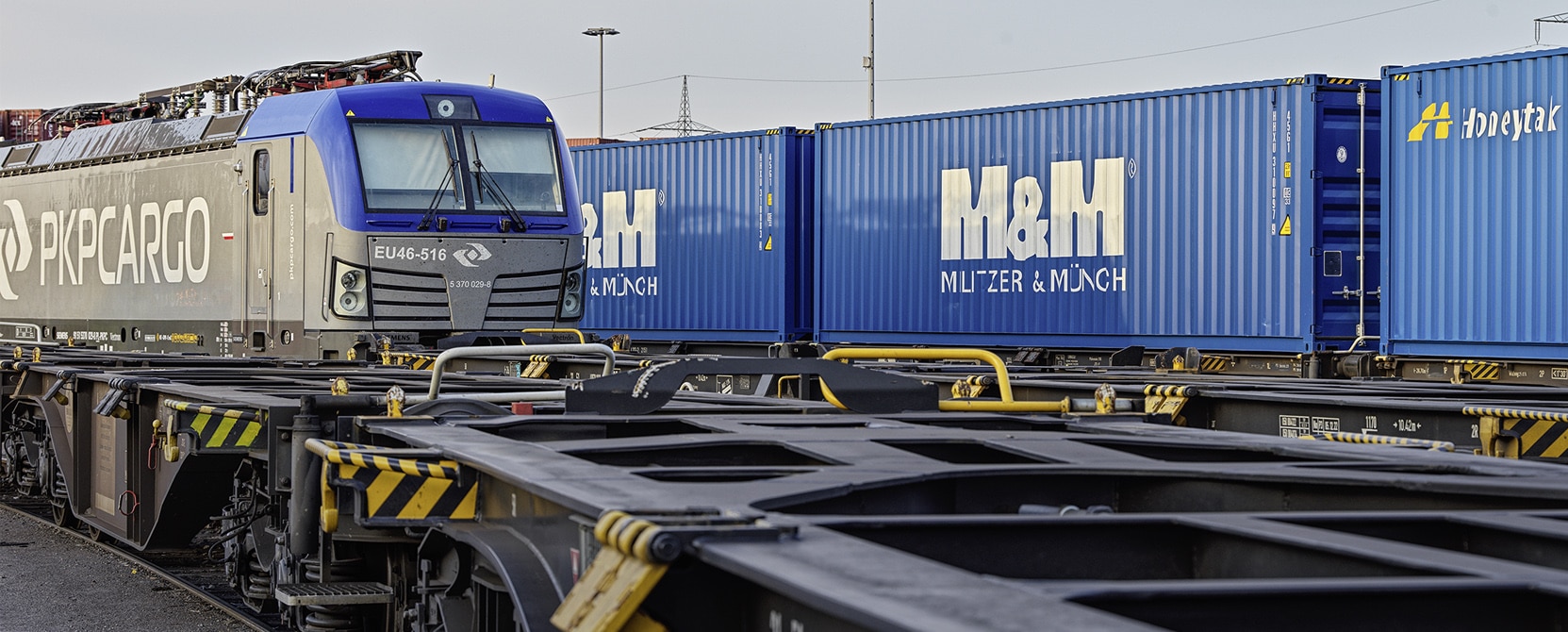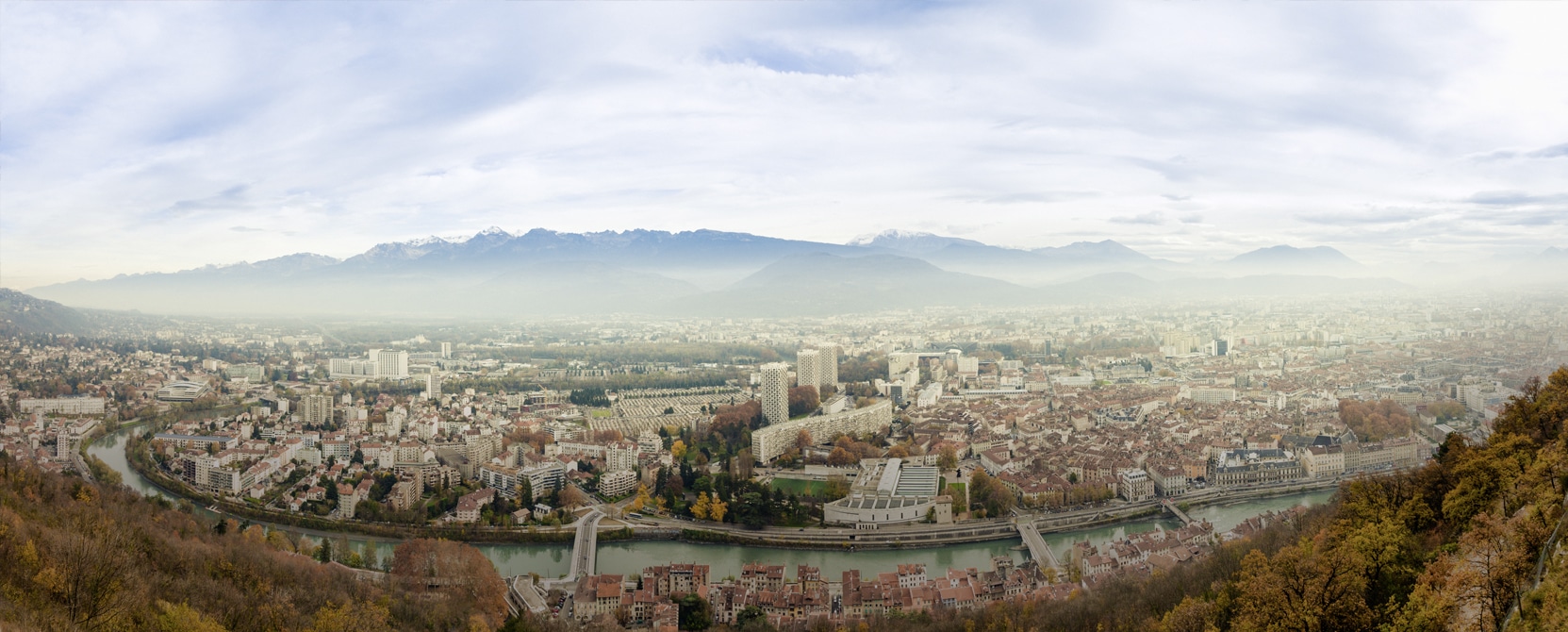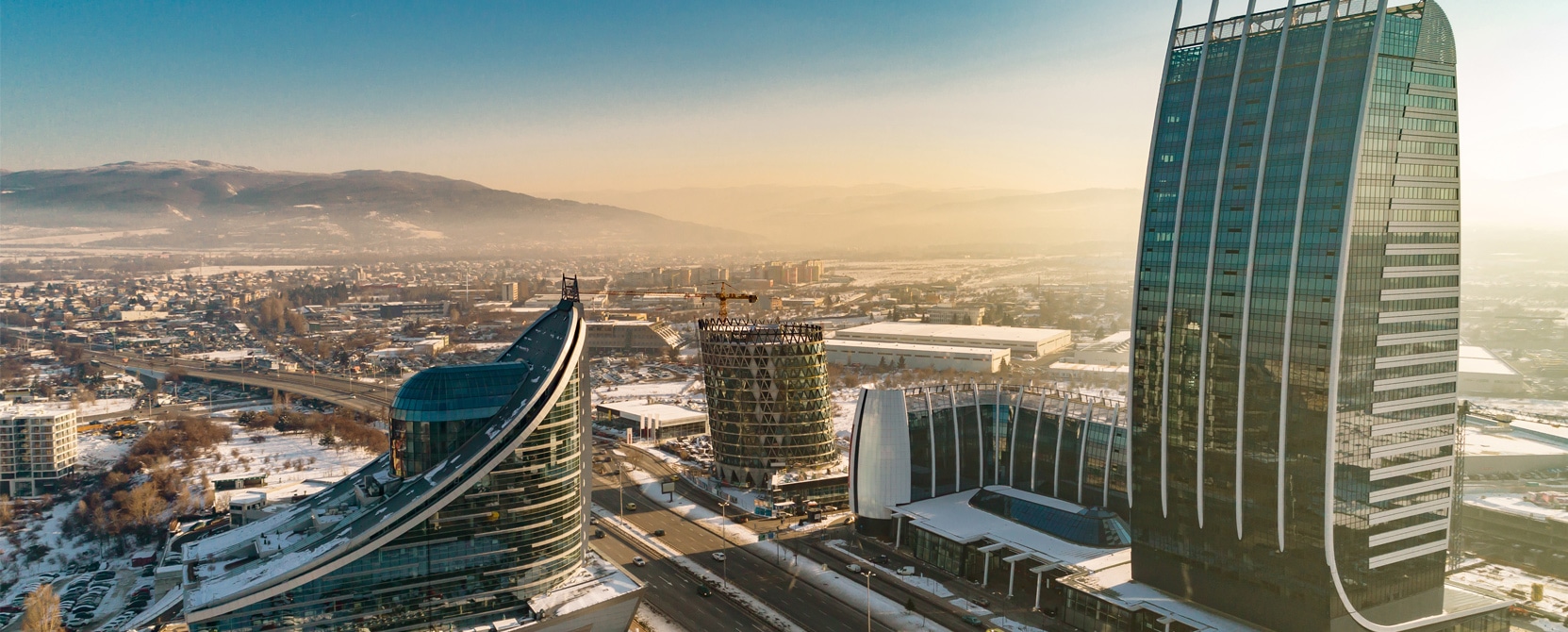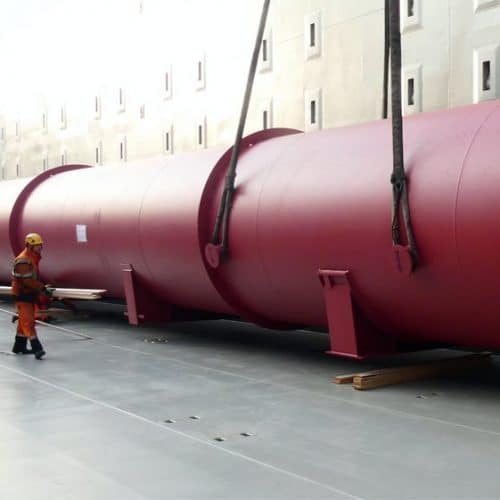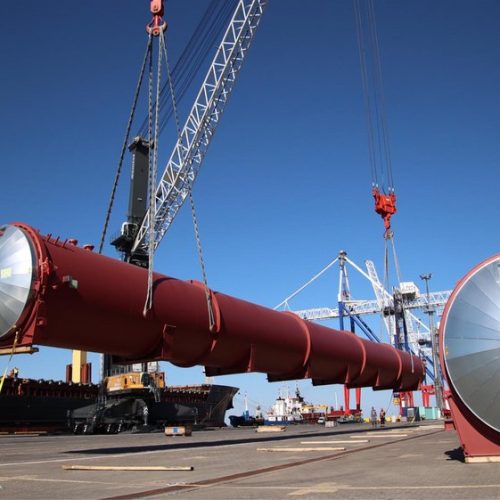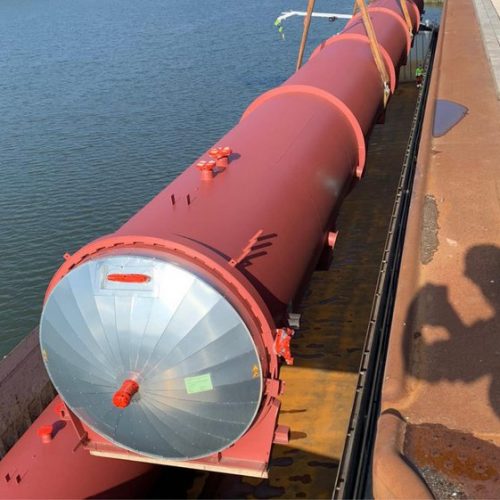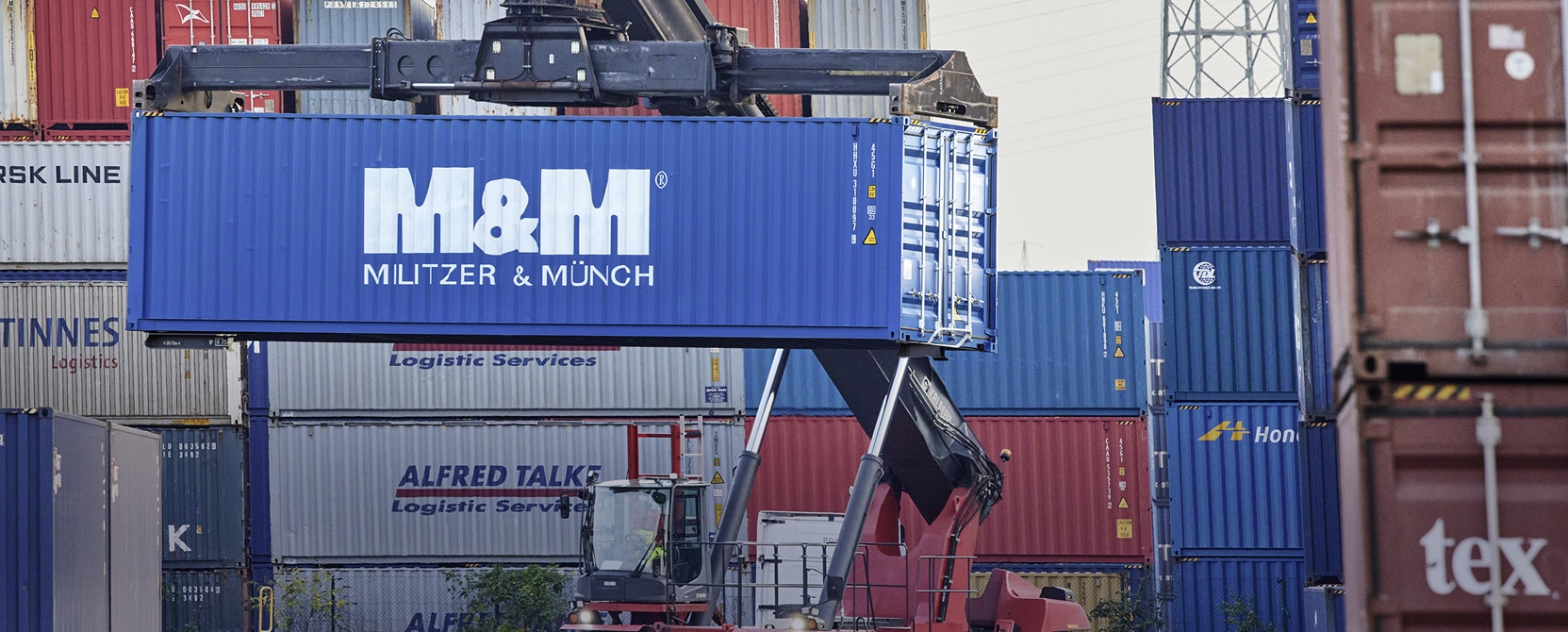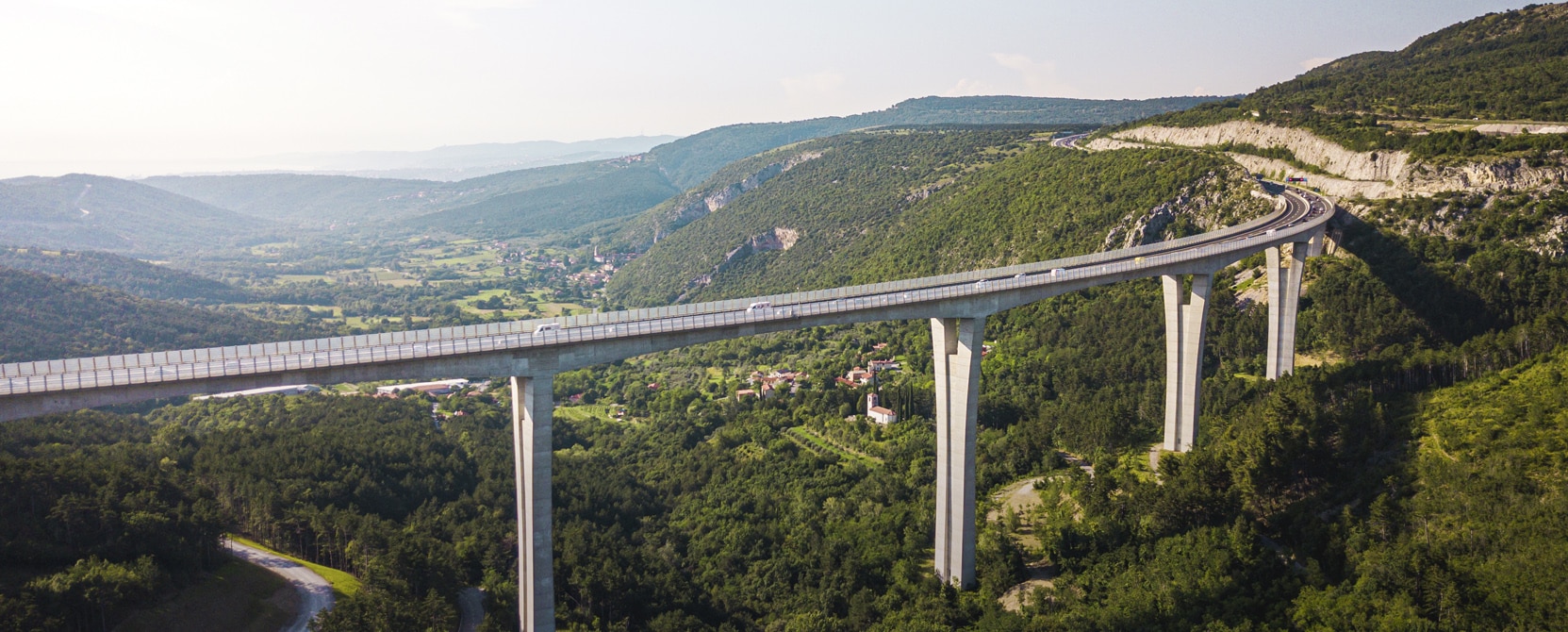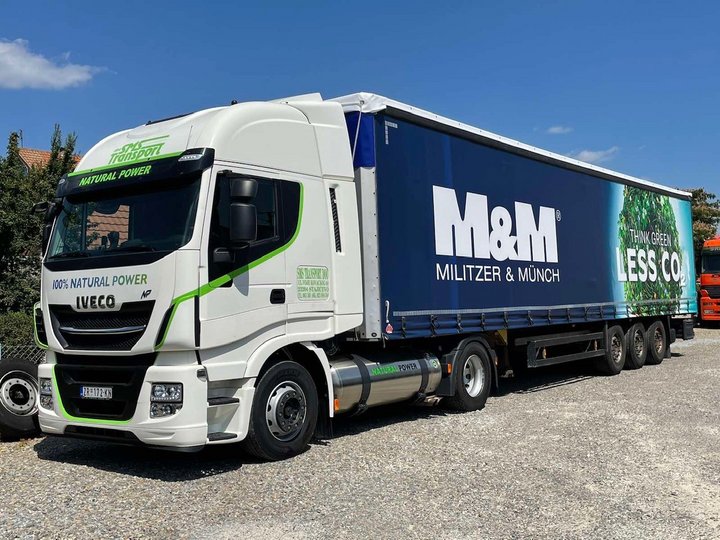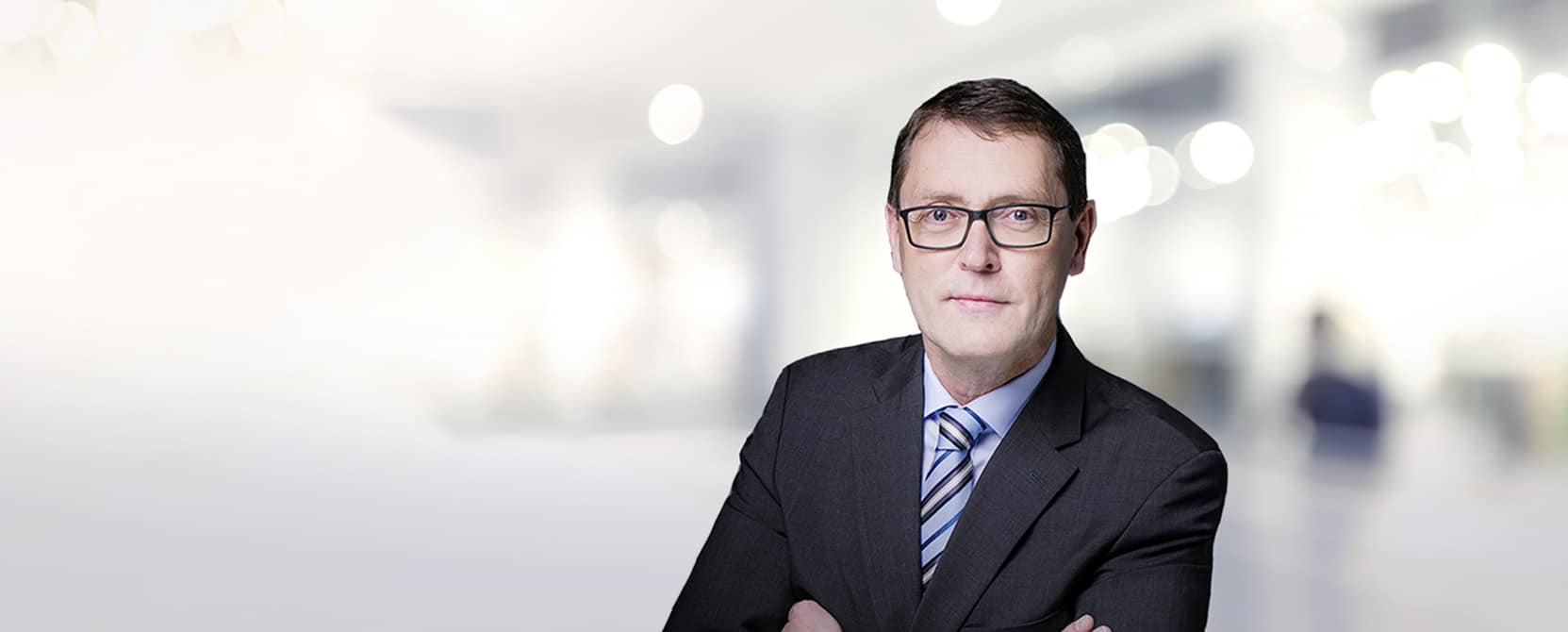Holger Seehusen is a member of the Militzer & Münch Group Management and Managing Director of the German M&M air sea cargo GmbH. Thanks to his 30 years of experience in the logistics industry, he is particularly familiar with the market in Asia. In the interview, he explains why the Militzer & Münch Group’s business has developed well in the past months, and why he considers it a privilege to work in the logistics industry.
Mr. Seehusen, you are responsible for the Militzer & Münch Air & Sea business. How have the two segments developed this year?
Holger Seehusen: Since 2018, based in Frankfurt, I have been responsible for the Air & Sea activities in Germany. As a member of the Militzer & Münch Group Management, I am also responsible for the product development of the Air & Sea sector worldwide. We drive the product development in our de-centrally organized group of companies taking a joint approach and banking on a corresponding implementation, which also means a certain amount of persuasion work needs to be done at the individual country units. Currently, we are working on various projects in these business segments. In particular, the focus here is on sustainability. I must say this is a very interesting task.
Last year, after the difficult COVID-19 months in spring, business development in the Air & Sea activities, but also in particular in Rail transports, was very satisfactory. This extremely positive development has continued in the current fiscal year. Thanks in part to the restructuring measures implemented in previous years, we were already well positioned at the start of the pandemic, and able to master the temporary uncertainty in the industry.
In recent years, we invested heavily in our Trade Lane Management for the USA, Asia and India regions, and opened a subsidiary in Malaysia, thus laying important groundwork for further growth. Yet despite the generally positive sentiment in the industry, I believe we must not allow ourselves to be blinded by the currently good results. Challenges such as digitalization, junior staff, promoting young talent, reducing CO₂ emissions in transport handling and the resulting shift in procurement markets are topics that we have on our agenda. The answers to these issues are indicative of the future of our industry.
What distinguishes Militzer & Münch from the competition?
Holger Seehusen: Militzer & Münch is a family-owned company, and we see ourselves as a medium-sized enterprise. To me, this means that we have high social responsibility towards our employees – probably more than is the case with other large companies. Flat hierarchies give us the leeway to implement ideas. Our colleagues learn early on to take responsibility themselves and to simply try things out. Success and failure depend on open communication and constructive feedback, all of which serve to support personal development in leadership.
Customer satisfaction is Militzer & Münch’s top priority. Where are you in terms of customer satisfaction at the moment?
Holger Seehusen: Before the pandemic, we did a survey among our customers – and at that time, satisfaction was high. In view of the shortage across all modes of transport, the current situation is, frankly speaking, somewhat different. In supply chain management, the general conditions throughout the industry are not satisfactory at this time. It is important to inform customers at an early stage if a transport cannot be carried out as planned. Our customers in the textile industry in particular sometimes have tight contracts with their customers, with conditions where every day really counts. We enter into dialog with the customer very early on, and try to offer alternative transport routes and solutions. Often, we cannot influence whether, for example, a container arrives later, and at a different destination port, than originally planned. The subsequent hinterland transport has then to be rescheduled at short notice.
At some airport warehouses, there is a backlog of several thousand tons! Truckers sometimes wait 48 hours before they can load their freight. In the meantime, some trucking companies have stopped accepting orders that involve picking up goods at airports. In some cases, the shipments may have arrived on time, but it takes long to locate them in the crammed warehouses of airlines and handling agents.
In addition to transportation bottlenecks, we are also facing challenges in finding skilled personnel. Since the September 11 attacks, very strict rules have been in place for personnel at airports – and this also applies for the commercial staff at the transshipment warehouse. Anyone who wants to work there needs a background check as required by the Aviation Security Act.
Have there been any new products in the Air & Sea business in recent months?
Holger Seehusen: We have developed a relatively new product together with our Greater China Trade Lane Management in Frankfurt and our country unit in China: from China by truck via Kazakhstan to Europe, among other things to deal with the shortage of cargo space on other modes of transport. We can draw on our expertise and benefit from having our own country units in Central Asia here. We have been offering this transport alternative to our customers with growing success since the end of 2020.Another exciting project is in the planning stage, namely an air – road service between China and Europe. From Shanghai, goods are to be transported by air to the Kazakh city of Almaty, and from there on to Europe by truck. As a freight forwarder with particular expertise in niche markets, we are experienced in such alternative transport models. In view of high freight rates and a shortage of capacity for sea transport, this product is certainly an attractive alternative for our customers.
As a matter of fact, we can claim to have recognized and understood the potential of rail transport between Asia and Europe at an early stage. The new Silk Road still holds a lot of potential for the Militzer & Münch Group. Which is why, some time ago, we incorporated the Rail segment into M&M air sea cargo GmbH; a team of four coordinates all our rail transports from Düsseldorf.
From the Düsseldorf office, we have also further expanded our project logistics by sea segment. In Hamburg, we would like to continue growing in air freight, especially in AOG together with our colleagues in China. Moreover, the Militzer & Münch Group is striving for GDP certification, the certificate of Good Distribution Practice, so we can expand our service portfolio for pharmaceutical companies.
For some time now, container shortages and transport bottlenecks have been affecting the industry, and Militzer & Münch is feeling the effects, too. Have there been any shifts in transport modes?
Holger Seehusen: Oh, absolutely. To give an example, we had to fly 40 tons of steel from Europe to Mexico – a shipment that had originally been planned as ocean freight. Our great advantage is that we cover all modes of transport and can quickly offer alternative solutions. One thing applies here, however: we need to keep an eye on the liquidity of our customers and partners, who in turn depend on their own customers to pay on time. Some shipments were planned well in advance, but freight rates skyrocketed, and that’s not easy for every customer to shoulder. We always have to be beware of financial risks.
You’ve been active in the logistics sector for a long time. What fascinates you about the industry?
Holger Seehusen: I have been at home in the industry since 1991. Before I joined the Militzer & Münch Group in 2018, I had been with Rhenus Logistics for over 17 years in various areas of responsibility and working in different regions. This included Germany as well as interesting assignments in CIS countries, but especially in Asia and then for many years in Southeast Asia, before I decided to go back to Germany in 2016. After returning, I realized after a while that it was just not my “home” anymore, and that I wanted to try something new. Despite my long years in this industry, I have a lot of fun and am still learning every day. Frankly, I feel it’s a privilege to still have that fun and that daily challenge – that’s what drives me. I think I can transfer that enthusiasm to my colleagues with whom I work directly. At least that’s what I hope, but my professional environment is a better judge of that.
What advice would you give to young people who want to pursue a career in the logistics industry?
Holger Seehusen: The industry is very diverse and offers great development opportunities. What is particularly appealing is the internationality, which often gives us a different perspective on things. If you’re curious, you can make good use of the opportunities this industry offers – and that’s what I hope to convey every day with my management approach.
Our challenge as an industry is to improve the image and the multifaceted opportunities of the profession. For example, as part of our cooperation with the University of St. Gallen (HSG), we sponsor the annual Supply Chain Innovation Day and, in September 2021, were part of the panel. In my view, this is exactly the right approach to being visible as a company and getting more young people interested in logistics.
